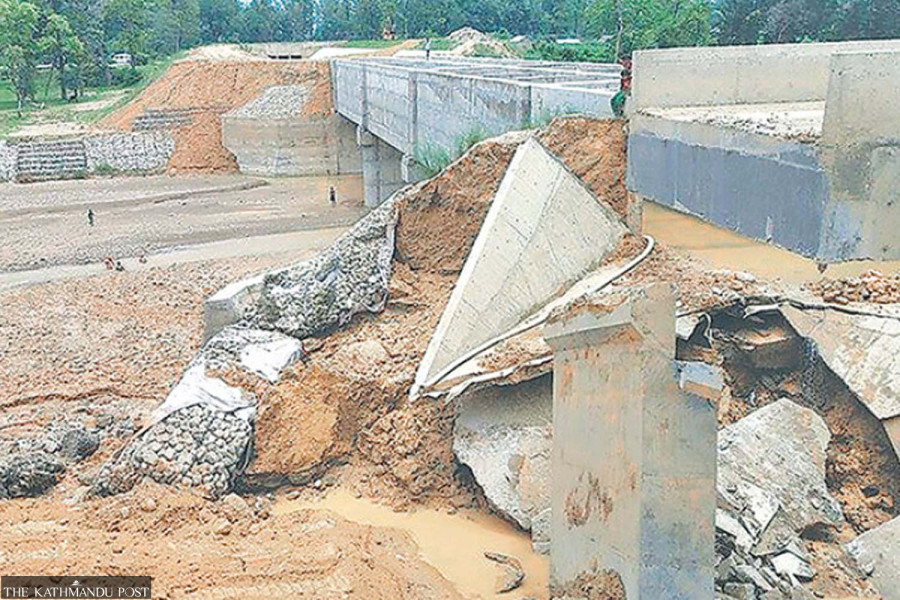Editorial
Sinners of Sikta
Those who botched the national pride irrigation project should not be allowed to get away this time.
Months after the humble soil of Sikta bore the burden of responsibility for the collapse of the eponymous irrigation project, the Commission for the Investigation of Abuse of Authority (CIAA) has come forward to salvage the soil’s image. The anti-graft body has filed an appeal at the Supreme Court against the Special Court verdict that absolved 21 defendants who faced irregularity charges in the irrigation canal-building project. The Special Court had on June 19 last year acquitted all 21 accused, including Bikram Pandey, chairperson of Kalika Construction, the project’s main builder, and various other individuals including other high-ranking government officials.
The CIAA has claimed that the irrigation ‘national pride project’ in western Nepal had been developed in haste without so much as considering the findings of a feasibility report with a clear motive of corruption. A task force formed to investigate the collapse of the canal had found that the consultants had avoided carrying out a special test of the soil before starting building. Moreover, substandard construction of the project, in addition to the “dispersive” nature of the soil at the project site, had led to repeated collapse of the main canal. The burden of testing the suitability of the soil before spending billions of rupees of public money falls on the builders and other stakeholders and not on the soil itself.
However, the Special Court in its verdict blamed the canal rather than the individuals who ignored the most fundamental rule before beginning a project. The court’s argument while giving clean chit to the accused was ridiculous, considering how every other consideration related to the flawed construction had been ignored while putting the blame on the physiological condition of the soil at the construction site. The canal collapsed during its testing phase in 2016 and has done so multiple times since, with the builders failing to provide a permanent solution to the problem. In the investigation that followed, the CIAA found that irregularities had begun right at the design phase.
As if the serious accusations of graft and the Special Court’s tragic verdict were not enough, Pushpa Kamal Dahal earlier this year appointed Pandey as the minister of physical infrastructure in a clear case of conflict of interest. Although Pandey and his party colleagues resigned from their positions soon after, the fact that he got the plum position despite the serious allegations levelled against him show how the country’s top leadership have no qualms about serving their vested interests at the expense of national interest. The fact that the irrigation canal project had got a go ahead despite multiple study reports showing clear evidence of dispersive soil shows corruption in Nepali politics and bureaucracy runs deep.
The CIAA is right in pursuing the case against the “erroneous” Special Court verdict on the irregularities in the Rs25.02 billion project. The anti-corruption body should make sure to take the case to a logical conclusion to ensure that large-scale corruption cases like the Sikta are not repeated and the wrongdoers do not get away with substandard work at the cost of people’s hard-earned money. If those involved in this most egregious case of corruption get away, then the rule of law in the country can be declared dead.




 9.7°C Kathmandu
9.7°C Kathmandu














